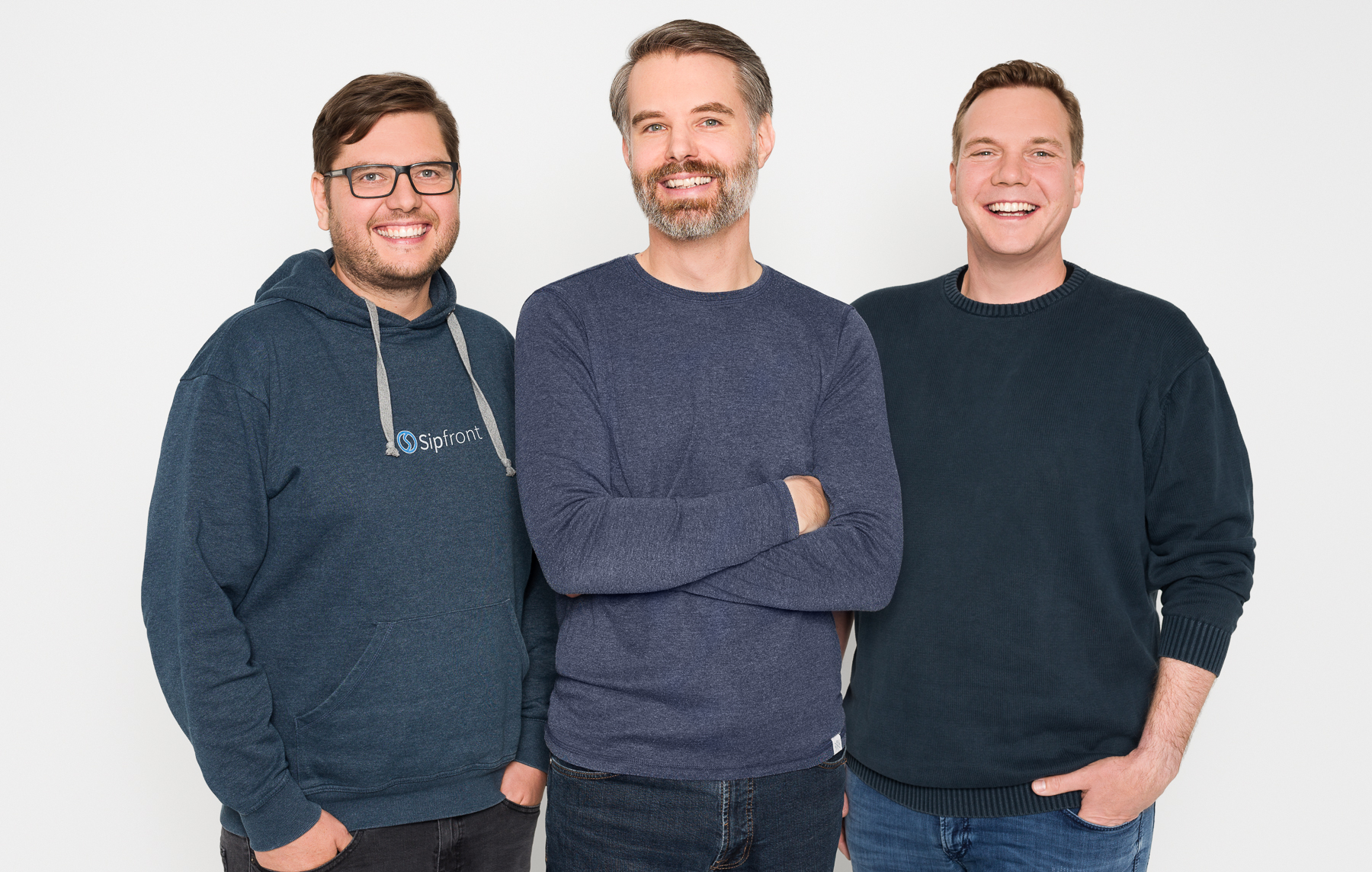Machine Learning will make video conferences more reliable

The two founders Andreas Granig and Daniel Tiefnig are doing it again. After selling their company Sipwise to Alcatel-Lucent Enterprise for an eight-figures amount in 2018, they are back together for another startup adventure. With Markus Seidl as the third shareholder, their new startup Sipfront is off to revolutionize test automation for telecom services.
Sipfront simulates phone calls and video conferences for its customers and checks whether connections get established and call quality meets predefined requirements. “Our offering enables customers to test their real-time communication services proactively and automatically, allowing them to significantly increase the service quality, lower the cost and improve the overall user experience,” says CEO Andreas Granig.
In the course of a three-year research project funded by the Austrian Research Promotion Agency FFG with a seven-figure grant, Sipfront is deep-diving into typical connection problems such as dropped hotline calls or “I can see you, but I can’t hear you!?” scenarios in video conferences. The project will be supported by OFAI, the Austrian Research Institute for Artificial Intelligence. “Using large amounts of calls generated by Sipfront, we will develop and train specific machine learning models to derive patterns and recognize and categorize connection errors in real-time communication systems,”, says Dr. Brigitte Krenn, head of the Language and Interaction Technologies Group of OFAI.
Besides telecom operators and video conferencing solution providers, companies depending on these services in general will benefit from the resulting insights, because connection issues will be identified and rectified much more efficiently in the future.
comments powered by Disqus